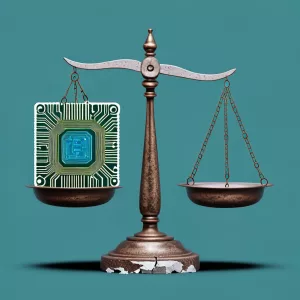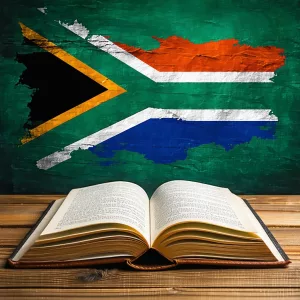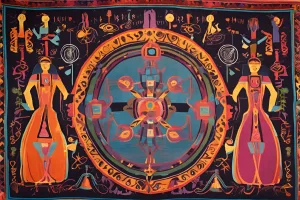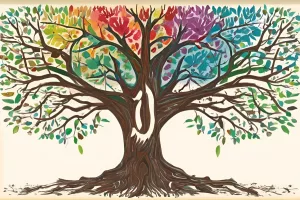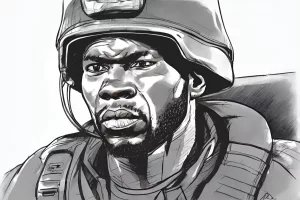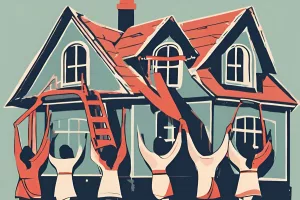The South African Women in Science Awards (SAWISA) celebrate 20 years of honoring women who have changed the face of science in South Africa. This special event shines a bright light on women’s achievements, from research breakthroughs to leadership roles, inspiring future generations. Over the years, more women have stepped into labs and classrooms, breaking barriers and reshaping the scientific world. Yet, the journey continues as more effort is needed to reach true equality, especially in top leadership. SAWISA is not just an awards night it’s a powerful movement lifting women up and lighting the path for those who will follow.
Minister Mmamoloko Kubayi envisions a future for South Africa’s National Prosecuting Authority (NPA) built on honesty, technology, and care for victims. She calls for stronger teamwork, fighting new types of crime, and giving women equal chances within the system. Kubayi wants the NPA to be a place where talented people grow, where justice moves faster, and where victims are treated with kindness and respect. Her vision is bold: a justice system that is fair, modern, and ready to face tomorrow’s challenges.
Minister Mmamoloko Kubayi spoke passionately at the Vaal University of Technology about the ongoing fight for gender equality in South Africa. She highlighted both the progress made, like more women in government and courts, and the big challenges still faced, such as unfair jobs, cultural barriers, and high unemployment for Black women. Kubayi reminded everyone that real change needs teamwork and sharing success so no one is left behind. Her message was clear: together, South African women can break old rules and build a fairer future for all.
Kirsty Coventry has made history by becoming the first woman and the first African to lead the International Olympic Committee (IOC). At just 41 years old, she brings a powerful vision of fairness and inclusivity to the Olympics, inspiring young athletes everywhere. As a former Olympic champion, she understands both the joys and challenges of sports, and she is ready to tackle tough issues like gender equality and the participation of athletes from different countries. Coventry’s leadership promises a brighter future for the Olympic movement, with hopes of bringing the Summer Olympics to Africa for the first time. Her journey reminds us that with hard work and determination, anything is possible.
In postapartheid South Africa, the fight for equality faces many tough challenges. Thuli Madonsela, a strong voice for justice, criticizes AfriForum for resisting the changes needed to treat everyone equally, especially after the unfair advantages of the past. She believes that true equality means everyone must be treated the same, pushing against old privileges. Moreover, AfriForum’s actions, like seeking support from international figures, complicate the journey towards fairness and unity in South Africa. As the nation works to heal its wounds from apartheid, embracing inclusivity and acknowledging history is vital for a brighter future.
In Cape Town, three amazing women—Zetu Mase, Nasiefah Corker, and Nokanyo Xobololo—are changing the game in the automotive industry. As they finish their apprenticeships at the College of Cape Town, they prove that women can excel in a field often seen as only for men. Zetu’s passion for cars, Nasiefah’s hard work and resilience, and Nokanyo’s brave leap into a new career inspire others to follow their dreams. These pioneers are not just fixing cars; they are paving the way for future generations of women to shine in every corner of the automotive world.
Membathisi Mdladlana was a powerful leader in South Africa, known for his fight for justice and education during the country’s shift to democracy. He helped create the Bill of Rights, served as Minister of Labour, and cofounded the South African Democratic Teachers Union, focusing on workers’ rights and better schools. His work paved the way for a fairer society, showing how important education is for everyone. Even after his passing, Mdladlana’s legacy inspires people to keep working towards equality and opportunity for all South Africans.
Women are making powerful strides in Africa’s energy sector, breaking down barriers and leading the way toward equality and innovation. With strong voices like Deputy Minister Judith NemadzingaTshabalala, the call for more women in leadership roles is louder than ever. Programs focused on education and mentorship are helping women gain the skills and support they need to excel, especially in fields like Liquified Petroleum Gas (LPG). As women step into these roles, they bring fresh ideas and perspectives, paving the way for a brighter, more sustainable future for everyone. The energy industry is transforming, and women are at the heart of this exciting change.
In a groundbreaking ruling, the Free State High Court in South Africa has declared that men can now take their spouse’s surname without facing any barriers, a change that highlights the importance of gender equality. Previously, only women had this right, marking a clear discrimination against men. This decision paves the way for both partners in a marriage to choose their identity freely, moving away from outdated traditions. The court’s ruling not only recognizes personal autonomy but also sets a powerful example for future laws, urging society to embrace true equality for everyone.
The women’s empowerment discussion at the Provincial Women’s Dialogue included progress made over the past 30 years and ongoing challenges such as genderbased violence. Minister Maropene Ramokgopa delivered a moving keynote speech, paying homage to the women who paved the way for continuous initiatives to uplift and liberate women. The dialogue served as a call to action for collective efforts towards enhancing women’s empowerment and aligning policies with the National Development Plan. While progress has been made, there is still work to be done, and women’s empowerment is vital for achieving development objectives and generating economic opportunities for everyone in South Africa.
Constable Thabisa Ntyinkala is the only female member of the Tactical Response Team in the South African Police Service and an inspiring example for her colleagues. Her firm countenance, exceptional fitness, and ability to match her male colleagues’ tempo have earned her respect and made her a force to be reckoned with. Ntyinkala emphasizes the importance of physical and mental strength for women in maledominated fields and upholding professionalism at all times. Through her unwavering commitment, she is creating a path towards a more diverse and equal working environment in SAPS.
Women in South Africa have overtaken men and mixedgender couples in property ownership, with women owning 38% of all properties. This trend began in 2016 and has continued to increase, highlighting women’s financial independence and the country’s progress towards gender equality. Women are not just home buyers but also investors, using real estate as a tool for wealthbuilding and financial freedom. Despite this, women still see their properties as homes first and investments second.
The upcoming elevation of Justice Maya represents a historic change in South Africa’s judicial landscape, instilling hope and empowerment for women across the nation. South Africa’s judiciary is about to witness a pioneering moment as Mandisa Maya prepares to become the first black woman to preside over the Constitutional Court. Maya’s appointment as Chief Justice, effective August 31, 2024, follows her groundbreaking role as the first woman to head the Supreme Court of Appeal. President Cyril Ramaphosa recognized Maya’s potential to contribute to the transformation of the judiciary, calling her ascent to the apex court a beacon of determination and transformation towards gender equality.
Misha Abarder, an 11yearold girl, has shown incredible resilience and determination in pursuing her dreams of playing football. Despite facing discouragement and neglect from coaches and peers, she persevered and has been selected for the Western Province’s Schools Metro Central girls’ team. Her journey serves as a beacon of hope for other girls and is an embodiment of the shifting attitudes towards girls’ empowerment. Misha’s story ignites a spark of inspiration for every girl dreaming of success in a world that is gradually but steadily opening up to them.
The submission of the roster of proposed National Assembly members from Chief Justice Raymond Zondo symbolized a significant milestone in South Africa’s dynamic democratic voyage, highlighting the shift of legislative power and showcasing the unwavering devotion of its guardians. A Major Democratic Milestone
Justice Yvonne Mokgoro was an extraordinary trailblazer, breaking through barriers to become the first black woman appointed to South Africa’s Constitutional Court. Her legacy extends beyond South Africa, as she presided over the UN’s Internal Justice Council and was appointed as the inaugural chair of the Independent Expert Mechanism to Advance Racial Justice and Equality in LawEnforcement by the UN Human Rights Council. Her legal philosophy centered around human dignity, and her judgments consistently championed the rights of the most vulnerable members of society. Her life and legacy serve as a potent reminder of our shared responsibility to build a society centered on true equality, liberty, and respect for human rights.


